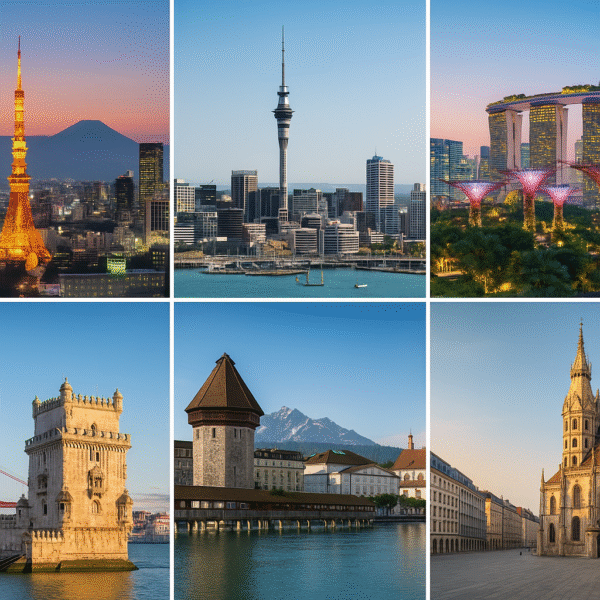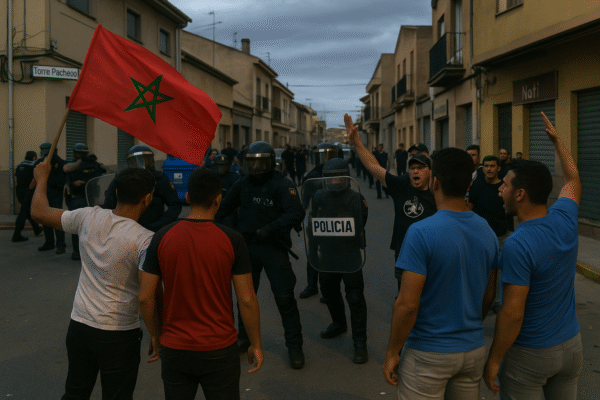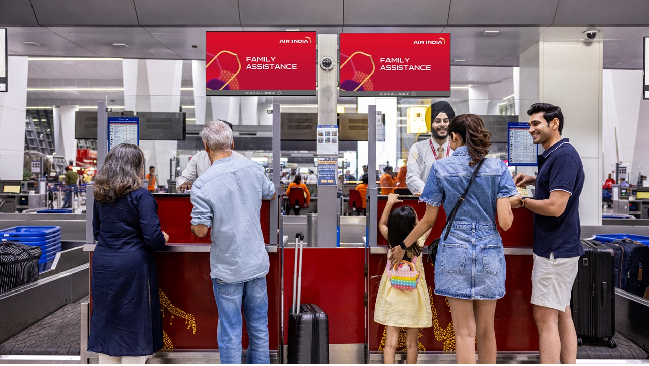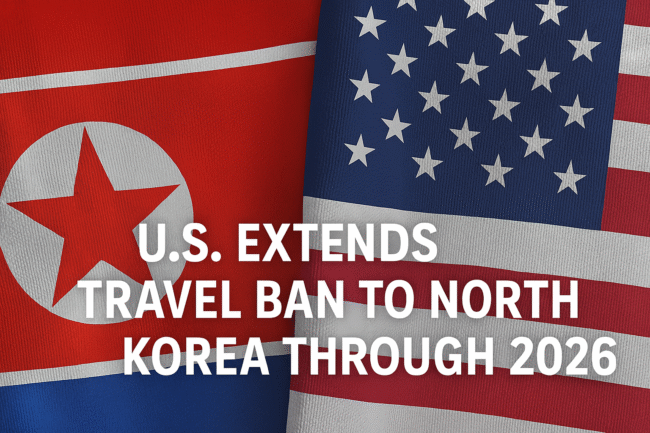Torre-Pacheco, a tranquil town in the Region of Murcia, Spain, was thrust into the national spotlight on July 12, 2025, following a violent eruption of unrest linked to growing anti-tourism sentiment, migration tensions, and far-right extremism. The disturbance—marked by street clashes, injuries, and rising political tensions—has left both local communities and tourism stakeholders deeply concerned.
The flashpoint came after the brutal assault of an elderly resident earlier in the week. The 70-year-old pensioner, attacked by unknown individuals on a quiet street in Torre-Pacheco, sustained serious injuries and is now recovering at home. The motive remains unclear, but the attack catalyzed a wave of fear and fury across the town.
The aftermath quickly spiraled out of control. On Saturday evening, far-right demonstrators—many identifiable by nationalist attire—staged an inflammatory march through Torre-Pacheco. In response, migrant community members, some displaying Moroccan flags, gathered in counter-protest. Violent clashes broke out, injuring at least five individuals. Police detained one suspect and have since launched an ongoing investigation into the riot. Although Sunday passed without incident, authorities have warned that more arrests are likely.
Rising Social Tensions in Murcia’s Agricultural Heartland
Torre-Pacheco is emblematic of broader tensions playing out across Spain’s agricultural belt. Roughly one-third of the town’s population comprises migrants—many employed as essential laborers in the region’s thriving fruit and vegetable sector. Yet integration has not come easily. Local leaders, including Torre-Pacheco’s mayor Antonio León, have long cautioned against rising xenophobia and economic marginalization.
Recent political developments have only deepened divisions. The conservative-led government of the Murcia region recently retracted a controversial housing plan for unaccompanied migrant minors following intense protests led by the far-right Vox party. Vox, Spain’s fastest-growing far-right movement, has capitalized on fears around immigration, portraying migrants as a strain on public services—a narrative experts argue fuels social unrest.
According to Spain’s Ministry of Inclusion, Social Security, and Migration, Torre-Pacheco’s migrant population is primarily composed of Moroccan, sub-Saharan African, and Eastern European workers. Many report experiencing systemic discrimination, poor housing conditions, and limited access to healthcare and legal support. Local NGOs have highlighted the need for greater investment in integration programs to mitigate hostility and promote coexistence.
Government Crackdown on Hate Speech and Political Extremism
In response to the Torre-Pacheco riots, Spain’s central government has moved swiftly to contain the damage. Mariola Guevara, the Spanish government’s representative in Murcia, condemned the violence and assured citizens that national security forces, including the Guardia Civil, would increase patrols in the town to restore order and safeguard public safety.
Government spokesperson Isabel Rodríguez also pledged a crackdown on hate speech and the dissemination of extremist ideologies online. “We cannot allow our communities to become battlegrounds for intolerance and political opportunism,” she said during a press conference in Madrid.
Spain’s Ombudsman has called for a comprehensive investigation into both the root causes of the Torre-Pacheco violence and the social inequalities that continue to plague migrant communities. Recommendations include expanded intercultural training for local authorities, school-based education on inclusion, and dialogue forums between native and migrant residents.
Implications for Spain’s Tourism Industry
Spain, one of the world’s top tourist destinations, faces renewed scrutiny as unrest like that in Torre-Pacheco threatens to tarnish its image of sun-soaked harmony. The tourism sector, which contributes over 12% of the national GDP, is still recovering from the impacts of COVID-19 and climate-related disruptions.
Torre-Pacheco, known for its close proximity to the beaches of Costa Cálida and golf resorts like Mar Menor Golf Resort, has increasingly drawn tourists seeking an authentic Spanish countryside experience. But recent headlines may deter international travelers concerned about civil unrest and safety.
“Tourism thrives on peace, stability, and cultural hospitality,” said José Luis Zoreda, Vice President of Exceltur, Spain’s tourism industry association. “While isolated, events like these send ripple effects across the country’s tourism-dependent economies.”
The Murcia Tourism Board has not yet issued formal travel advisories but has reiterated its commitment to visitor safety. Industry leaders urge balanced reporting, emphasizing that Spain remains a safe and welcoming country for tourists from all backgrounds.
Moving Forward: A Call for Unity and Dialogue
With tensions still simmering, local leaders are urging calm and cooperation. Torre-Pacheco’s town hall has initiated a series of community outreach meetings, hoping to build bridges between different cultural groups. Plans are also underway to involve schools, local businesses, and faith organizations in reconciliation efforts.
Civil society groups, including Red Acoge and Fundación Cepaim, are advocating for stronger migrant protection laws and inclusive public discourse. “Social peace depends on inclusion,” said one foundation spokesperson. “We must resist the politics of division and focus on building a shared future.”
Conclusion
The outbreak of violence in Torre-Pacheco serves as a sobering reminder of the fragility of social cohesion in areas grappling with rapid demographic change and political polarization. As Spain continues to navigate its evolving identity as a multicultural nation, both government and civil society must work together to promote tolerance, dialogue, and economic justice.
For now, the streets of Torre-Pacheco remain quiet—but the broader questions about migration, identity, and the future of tourism in Spain remain very much alive.
For more travel news like this, keep reading Global Travel Wire




















